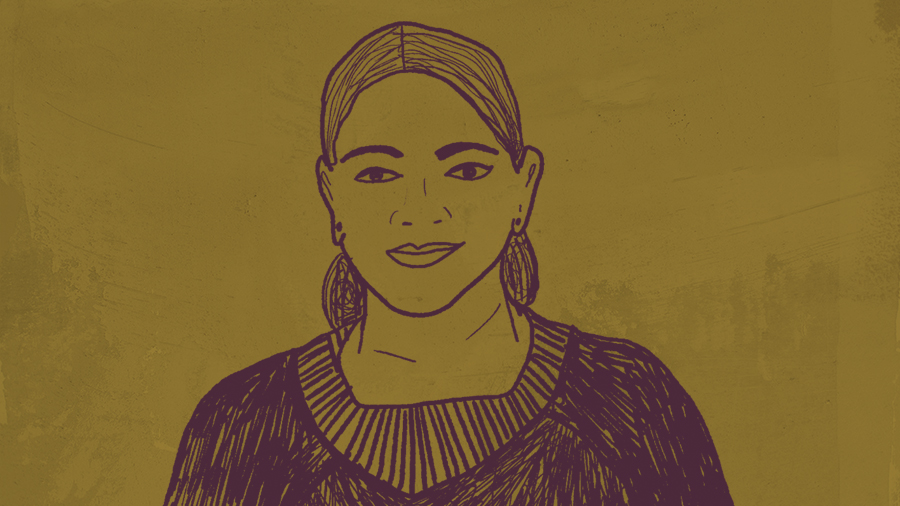These stories illustrate the long-lived realities of migrant domestic workers who seek making a living for themselves and their families in Lebanon under the Kafala system. Migrant domestic workers were and still are part of the fabric revolution that has been taking place in Lebanon since 2019, demanding the abolishing of the Kafala system, and decent work and work conditions. The combination of the total economic collapse, hyperinflation, and the pandemic of COVID-19 has especially been detrimental to their livelihoods. Many employers, or Kafeel, who operate in all impunity as per the Lebanese labor code, abandoned migrant domestic workers on the streets.
Many found themselves homeless and without resources; they demanded their right to go home and leave a system that can no longer provide for them in any shape or form. The Beirut explosion of August 4 made the situation even more precarious, aggravating the loss of jobs and shelter. Today, migrant domestic workers are staging sit-ins and protests in front of their embassies, demanding to go home, and worker-led groups, such as Egna Legna, are fundraising to provide their sisters with food, shelter, and flight bookings.
Delphine
Forty five year-old Delphine is a single mother of two from Cóte d’Ivoire who was left by the fathers of both of her children. Though she was hurting after her failed relationships, she realized she was also tasked with providing for her family. She chose to keep her children with her as she worked in Lebanon rather than take them back to her homeland.
“Those who had children back home before coming to Lebanon to work have to settle for their children being raised by a family member. They don’t recognize their children and their children don’t recognize them. They are the ones making a living, but the family bond is broken. This is why I decided to keep my children in Lebanon with me, even if it is very painful. Had I taken them back to Africa and left them there, I would have been able to keep half of my salary aside, but I did not want for that bond to be broken. I wanted them to have a mother, but I am causing them so much pain because I have to leave them with strangers during the week.”
Her daughter, the youngest, was seven years old and lived with other carers while Delphine worked from Monday to Saturday. To her mother’s dismay, she was not always looked after properly.
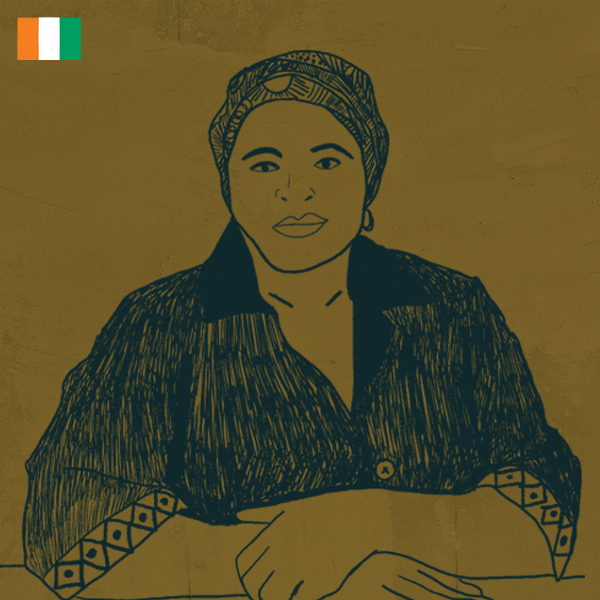
“When I go to pick her up in the week-ends, she is sometimes all dirty because nobody cleaned her up during the week, and I cannot say anything because I don’t want the people I am paying to keep her to kick her out. Where would I take her then? My employer told me, ‘you didn’t come here to make babies; you came here to work.”
Under the threat of deportation, Delphine had hidden her first pregnancy from her employer and continued the intensive physical labour that would eventually cause an unexpected complication with her pregnancy.
“Because of the hard physical work, I gave birth prematurely, after 6 months and a half.”
As he was born, her son had to be placed in an incubator that came at a high daily cost. She was advised to give the child up for adoption, but refused, and eventually her employer agreed to pay for the incubator. After this ordeal, Delphine was thrown out made destitute without a dime to her name. She went to Caritas, the official socio-pastoral arm of the local Catholic Church, where she was given some clothes, and later she moved in with some people from the Congo. A year later, she approached her former employer again for work. With a friend looking after her baby during the day, Delphine returned to work. A few years later, she fell pregnant again.

“When I was pregnant with my daughter, I did not want the same thing to happen to me, so I told my employer I was pregnant early on. She told me to have an abortion because she did not want a child around. I said no. So it became my problem, and she wanted nothing to do with it. When I gave birth, she told me to come back to work without my baby. My employer told me to choose between work and my children. But if I choose my children, how can I find the money to feed them? Migrant domestic workers also have the right to live. And people don’t understand that.”
Delphine was able to negotiate with her employer. She would keep her daughter with her for two years, strapped to her back as she did the household chores in order to stop her from running around or touching the furniture. Both of Delphine’s children had uncertain futures in Lebanon. Her daughter had no papers or passport at all, and her son’s papers required reapplication each year. Each time, they were never sure if his residency application would be approved or rejected, which would mean sending him back to a country that he had never known.
Delphine also had issues with her employer when her children fell ill or had school events for parents.ill or had school events for parents.
“My employer would not let me care for my son when he got chickenpox. She said she needed me to care for her own daughter, who was a teenager. My son would cry on the phone asking for me. My daughter’s school calls me often to tell me that my daughter wants to see me. If there is a small school performance for mothers, I can’t go because my Madam doesn’t allow me to. What else can I do? If the Madam says I can’t go, then I can’t go. If I get fired, we would all starve. If I get sick, I would get fired.”
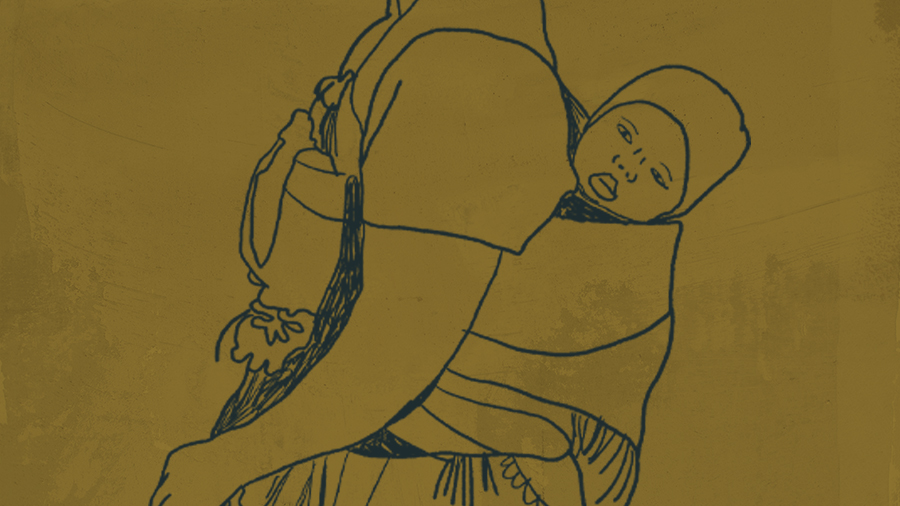
Meriam
Meriam was also a mother of two, but her children lived back home in the Philippines with their father. It was the over 20-year relationship with her husband that suffered during her time away in Lebanon, and, with the connection between them eventually becoming non-existent, she sought comfort in someone else.
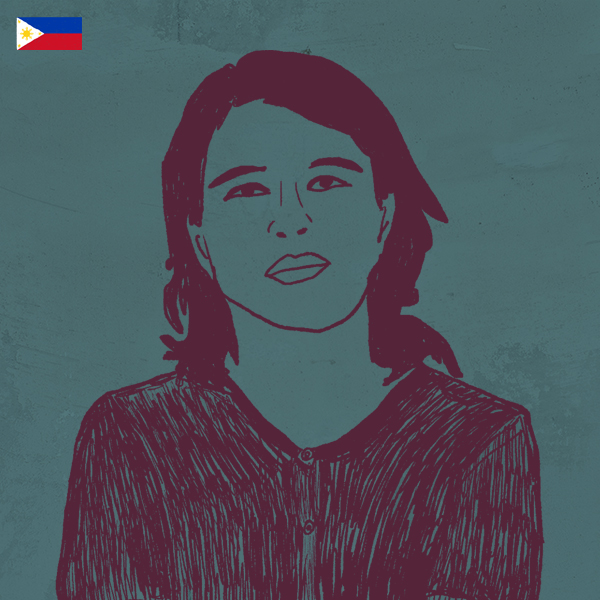
“I was illegal for 3 years here, with no papers, and he was the one who helped me. He also supported me with my health issues, as I now have to take this medicine for life because of my heart problems. People always judge me for having a boyfriend and living with him, even my sister… But I tell myself I have to enjoy my life now. I’ve been in Lebanon for 23 years and never celebrated Christmas with my loved ones. I’m still denying being in a relationship, because I always worry about what people will think of me, and I’m a mother.”
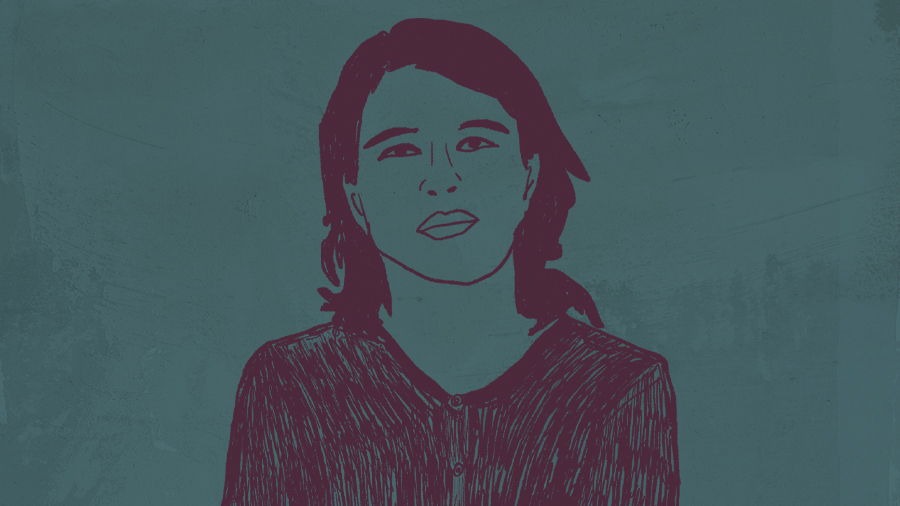
Julia
Julia from Madagascar had been working in Lebanon for 20 years. arriving as a young woman hoping to support her parents and sister back home, Julia ended up staying with the same employer, too afraid to venture further afield. As comparatively one of the “lucky ones”, Julia found love during her time in Lebanon, and, with the approval of her employer, married him. Though they had no children, Julia still faced the challenge of having to look after her spouse in a vocation that offered little flexibility when it came to leave.
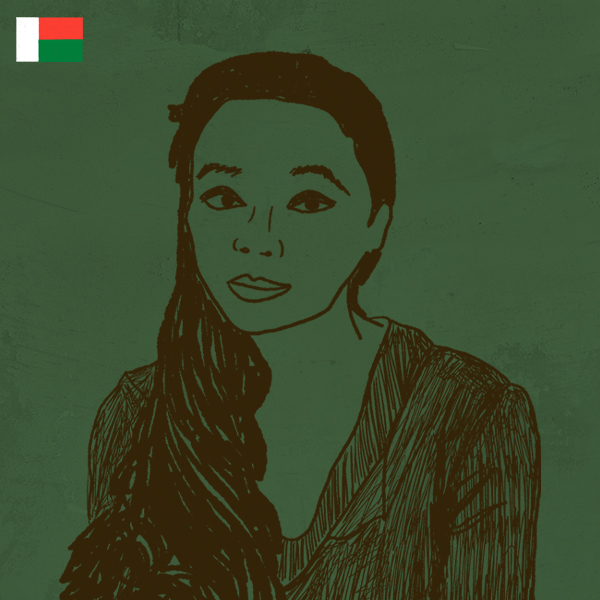
“If my husband falls sick on a Monday or a Tuesday, I can’t visit him. My madam asks, ‘why is your husband sick on a Monday?’ Can you think of a sickness that only happens on weekends? She tells me, ‘I give you time off from Friday afternoon until Monday morning; you have to do all your stuff within this time frame.’”
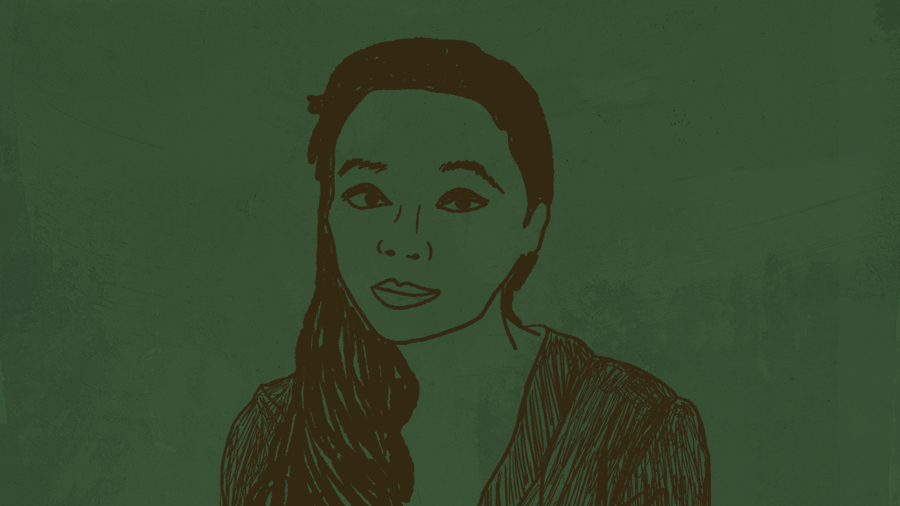
Gemma
Gemma, a seasoned domestic worker who had been based in Lebanon for 24 years, was a strong advocate for domestic workers retaining their sense of identity and their bodily autonomy. At fifty one, she considered returning to the Philippines to retire, but stayed with the hope that circumstances would change. Like many domestic workers, Gemma’s sacrifices knew no bounds. Each time she thought about spending on herself, she would think twice.

“We even tend to forget ourselves, to buy new clothes for example, because we think the money would be of better use for a child or grandchild. I myself want to go have a romantic weekend in Cyprus, but I cannot allow myself that because I’m thinking that back home my children will need that money. Even if I go, I won’t be happy because I’m thinking about that. Guilt is in our bodies, in our minds.”
“Most of the time, we are only focused on our daily work; we have forgotten about ourselves, our feelings, our emotions. We set them aside because we are told that we are here to work, not to feel or create human bonds. It’s being forgotten that we are humans too, we are women too.”

Gemma described her time in Lebanon as a time in which she “did not live”. In 1993, she saved all of her Western Union receipts, summed up the total, and then threw it away as “clutter” in an act of catharsis. Despite her hardship, she did concede that being able to send their children to universities was a great consolation shared by many of her colleagues. And while attending university is a great achievement, these workers found that starting a family at all was frowned upon.
“Women who have families and children here are labelled as ‘bad women’ because they bear children, as if it’s a sin. But they forget that it’s the right of a woman, that even a migrant domestic worker has the right to have a family; that she’s the one who decides about her life. We are only labelled as domestic workers and that’s it. A domestic worker has no feelings and no right to have a family and a future. All she is good for is work…We are ashamed to show who we are, what we want, what our desires really are. We think about what others will say, what our Madams will say. Our ways of thinking are being curbed, because the domestic worker label is the only life we get. We tend to forbid ourselves to be free.”

Rose
Rose, a forty seven year-old migrant worker from Cameroon, had been in Lebanon for 18 years, and had recently become a grandmother. Similarly to Gemma, Rose’s experiences as a domestic worker in Lebanon forced her to put her life on hold, even though the years passed by relentlessly.
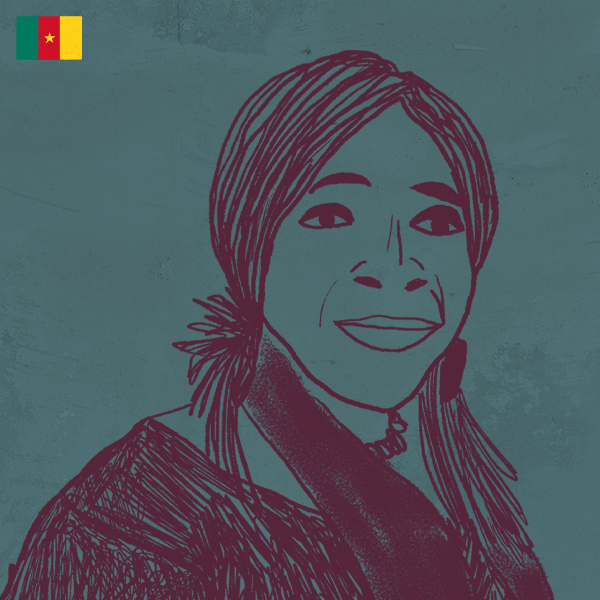
“My children grew up I don’t even know when, because I wasn’t there. I missed everything: the first day of school, the first love of my daughter, her first heartbreak. I haven’t lived any of this.”
Like many women in her position, Rose found it incredibly difficult to accept herself as a whole human being with desires and needs.
“I put myself in a box, and closed it. And now I feel I am unable to bring myself out of the box again. Now that I can and am supposed to have feelings, I don’t have them anymore, for anyone. I don’t really know what to do. I am stuck. Why can’t I, even as a domestic worker, be attracted to another person? Why can’t I fall in love, even at 60? It is the heart that beats. We forgot to live our lives; we don’t know how it works anymore. If you put me in the same room with a man, I’d probably start shaking like a fifteen year-old, even though I’m forty seven. It’s shameful. How do I live an adult life when I feel like a child?”
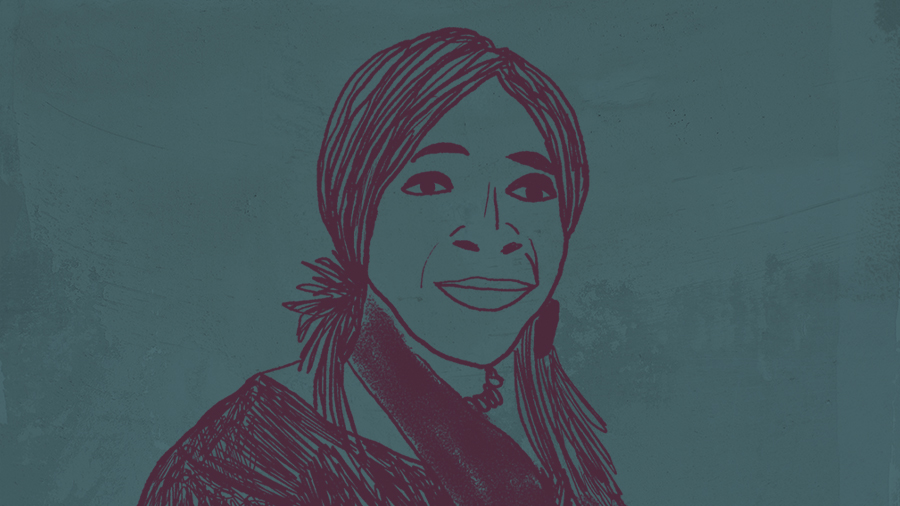
After experiencing the hardships of life as a domestic worker, Rose had struggled with her relationships and desperately wanted to know “how to learn again to live as a woman”, even after meeting a new partner.
“We chat on the phone, but I don’t have any feelings. I don’t know what to do. You might feel the need to be with someone, but I don’t have it anymore. And that is making me nervous and afraid. I’m very afraid. It might be because of the quality of the life we lead, or it might be something in my body, I don’t know. What to do to start living as a woman?”
Rose’s ordeal even extended to her days off, when she would dare to step out in makeup and clothes that were her own, and not a maid’s uniform.
“This morning I got out of bed…put some lipstick and lip gloss, wore my sunglasses, then went out to hail a cab. I was happy, today is Saturday and I don’t have work. I relax a little bit. A man who was driving past me screamed at me “what’s that outfit?” It’s not like I’m walking around naked. Or is it just because a migrant domestic worker is wearing lipstick and sunglasses?”
Taxi rides can also be a challenge, as certain drivers commit acts of public indecency, purely because their passenger is a female domestic worker. Rose had an encounter where her driver began masturbating while she was in the cab with him. She also recalled the story of a younger migrant worker who was approached by the “old man” of the family she was working for. His intention had been to bribe her for sex, and he offered her a sum. She accepted the money but refused to allow him to touch her. Eventually, she was drugged and raped. Whether it was by the older male alone or with his three unmarried sons was unclear. Rather than go to the police, a friend took her to the company that had brought her to Lebanon.
“The man in the office said, ‘why did she take the money from the old man? That is the price.’”
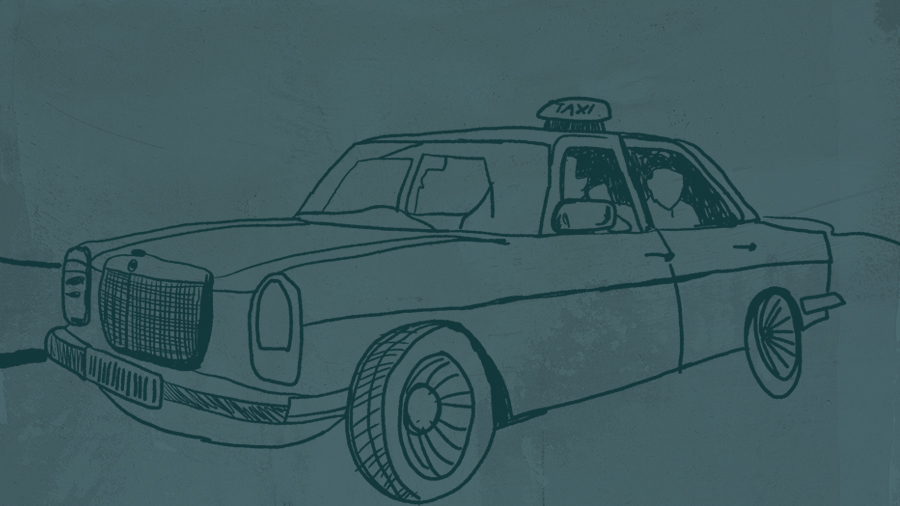
Mala
Mala was a Sri Lankan domestic worker who was based in Lebanon, and fiercely independent. She described her thirty-five year stint in Lebanon as “lost”, and that her life now was “almost over”. She, along with Gemma, emphasised how voiceless a woman in this profession truly is when no laws are in place to protect them.
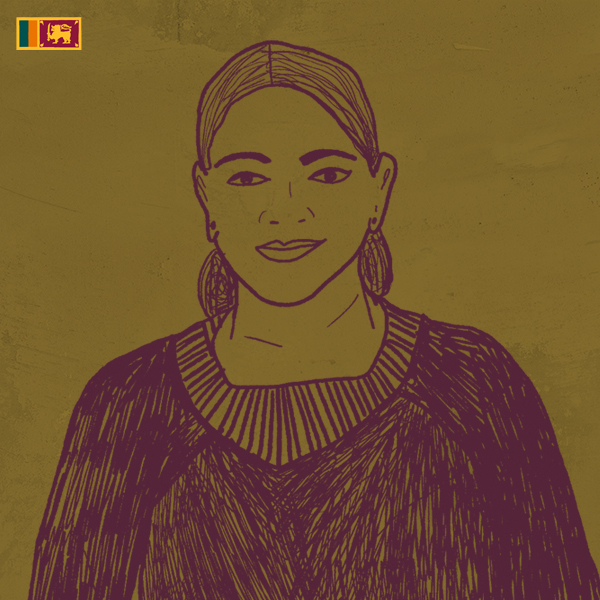
“We try to fight for our rights, but it’s difficult to reach out to the people who can effect change. We always talk about changing things, but nobody listens to us. Our time is limited as well due to the nature of our work. We have no holidays; our health is in bad shape, and we have to go with anything our employers ask of us, including longer workdays that are not remunerated, because we need them to do our papers. If anything minor happens, we end up being in the wrong. I am a freelancer; I cannot count the times I started working for someone and they never paid me. I would lose time and money, and there is no system to hold them accountable.”
“When we take the streets to protest and demand our rights, we are at risk that the police might come and arrest us. Since we are not included in the Lebanese labour code, there is no law that protects us. Domestic workers and foreign workers have no rights to assemble, to organise. Another form of abuse is having an irregular status and being undocumented. It’s being thrown in detention centres.The conditions at the detention centre are horrid; there is no privacy or right to personal hygiene. Are we criminals to be in jail? These are things to be amended. We are not criminals for having irregular papers; it’s not our fault. A lot of times, it is the fault of our employers who do not give us release papers or renew our residencies. It is the fault of the system that perpetuates the abuse.”
